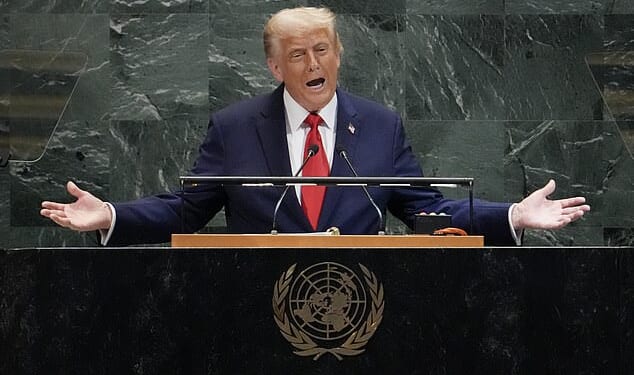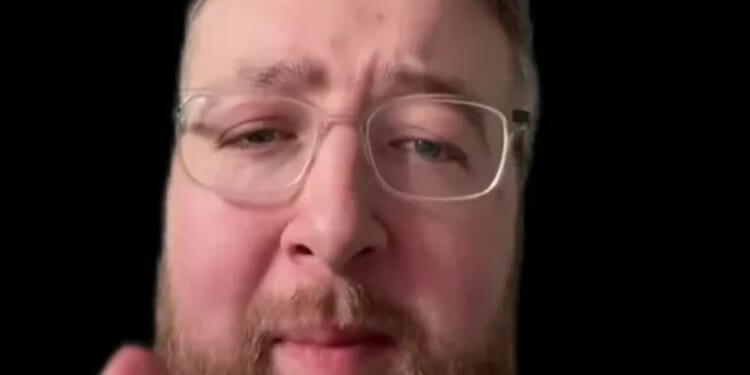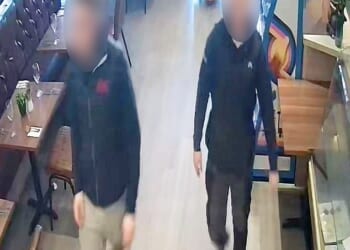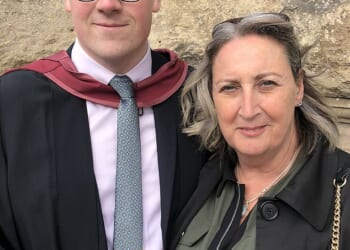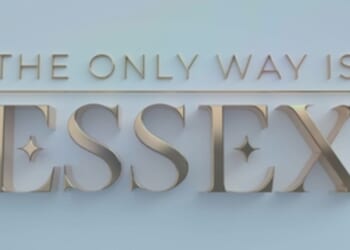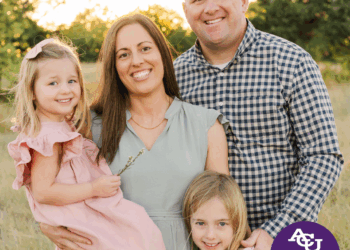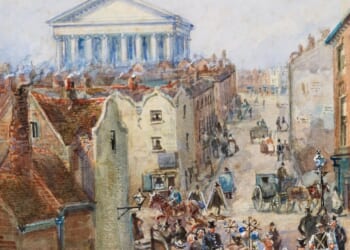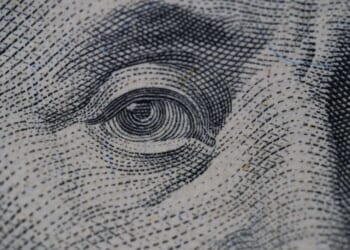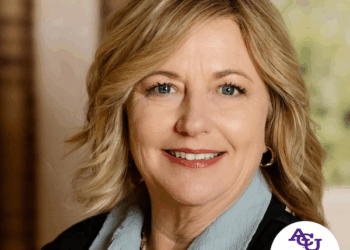A bland terraced house two doors along from a takeaway, it could hardly look more insignificant. But for thousands of Muslim Londoners, the decisions made behind its doors are anything but.
Formed in 1982, the Islamic Sharia Council in East London is one of at least five Sharia councils in the capital that offer rulings on a range of disputes, including major personal milestones like marriage and divorce.
That puts this building – however bland – right at the centre of an international debate that has drawn in none other than Donald Trump, who used a speech at the UN to suggest London wants ‘to go to Sharia law’ under its ‘terrible’ mayor, Sir Sadiq Khan.
While any claim London is moving its legal system to Sharia is obviously false, the president’s comments touch a nerve given growing public concern about the influence of Islamic law over the capital’s Muslim communities.
They also coincide with broader fears that Islam itself may be receiving favourable treatment in English courts, after a judge convicted protester Hamit Coskun of a public order offence for burning a Koran.
The charge for the offence, which the judge said was motivated by ‘hostility’ towards Muslims, was seized upon by free speech campaigners, who claimed it amounted to a ‘back door’ blasphemy law.
Their fury only increased after a Muslim man who slashed Coskun with a knife during the incident was spared jail. While the judge was following sentencing guidelines, it prompted claims that religious radicals were being ‘given the green light to take the law into their own hands’.
National Secular Society chief executive Stephen Evans also criticised Coskun’s prosecution, saying: ‘Free expression should never be met with violence. Criticism or destruction of religious texts, however offensive to some, is a legitimate form of protest.’
But back to Sharia law and its controversial status in Britain’s biggest city.
The term refers to a body of religious law inspired by Islam’s holy scriptures, including the Koran and hadith (sayings of the prophet Mohammed).
A 2017 Home Office review found 85 Sharia councils – which interpret this law to pass judgments, known as hadiths, were operating in the UK, prompting the country to be described as ‘the Sharia court capital of the West’.
London was described as a hub for Islamic religious law in Britain, alongside Birmingham, Bradford and Dewsbury.
Many believe the estimate on the number of British Sharia councils is an underestimate, with many being unofficial outfits based in the back rooms of mosques.
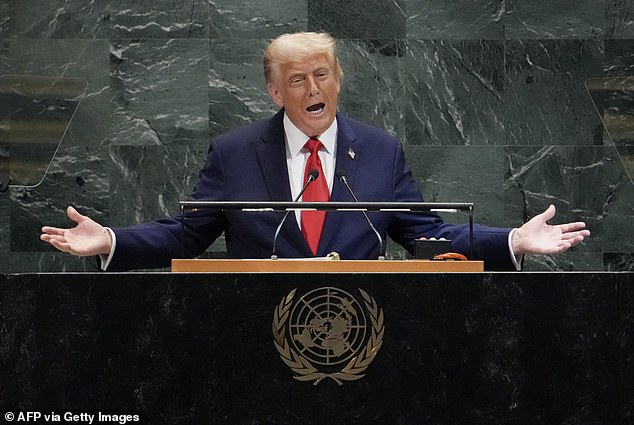
Donald Trump used a speech at the UN to suggest London wants ‘to go to Sharia law’ under its ‘terrible’ mayor, Sir Sadiq Khan
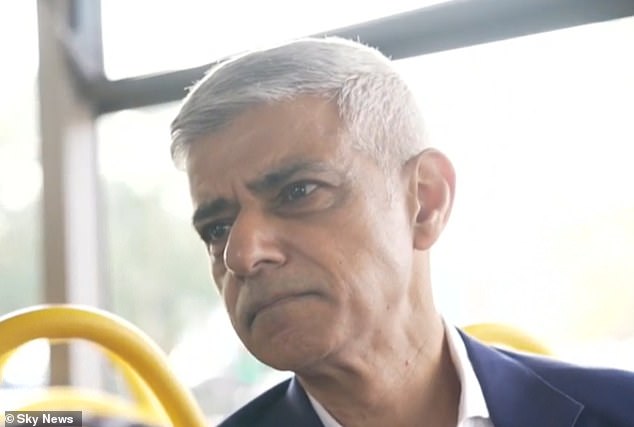
Mr Trump has repeatedly clashed with Sir Sadiq – pictured this week – in the past
Their fatwas only deal with family, marital or financial disputes – not criminal matters. Even so, critics believe they amount to a parallel civil legal system that conflicts with English legal principles and unfairly favours men over women in their rulings.
These claims found some support in a 2020 House of Commons Library report, which found evidence some councils were ‘operating in ways that are discriminatory against women’, including asking wives to pay their husbands to secure a divorce.
Many women in Islamic marriages have not gone through a legal ceremony, meaning they cannot turn to civil courts to defend their rights during a divorce.
Defenders of Sharia councils are quick to point out that their findings have no legal status in the courts of England and Wales.
While this remains true, concerns were raised last year when one fatwa was cited by a High Court judge in a ruling concerning the case of a critically ill child.
The parents of five-year-old Tafida Raqeeb, who had serious brain damage, obtained a fatwa from the Islamic Council stating it was ‘absolutely impermissible’ for medics at Barts Health NHS Trust in London to remove her life support.
In his own ruling, Mr Justice Macdonald described ‘having the benefit of a fatwa’ while coming to the decision to allow Tafida’s parents to seek further treatment.
This prompted secular campaigners to claim ‘harmful ideologies’ were ‘gaining legitimacy’ in English law, although the judge stated in his ruling that the fatwa was ‘simply a valuable restatement of the sanctity of life’ rather than a deciding factor in the case.
Other religions also run their own tribunals in the UK, with those of the Church of England having jurisdiction over some aspects of church property and criminal conduct by the clergy.
Jewish religious tribunals, known as Beth Din, allow individuals to resolve disputes based on Jewish law, while the Roman Catholic Church also operates tribunals that consider spiritual issues and marriage annulments.
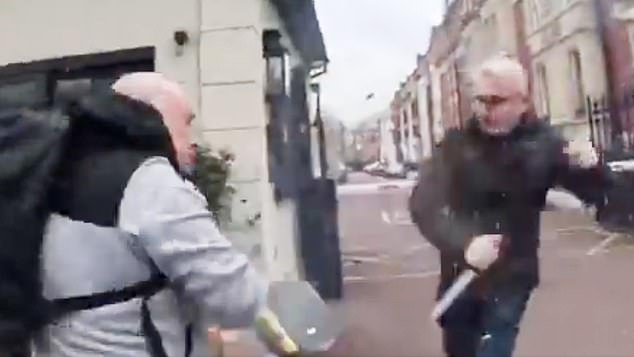
Protester Hamit Coskun is slashed with a knife by a Muslim man in London. The knifeman was spared jail
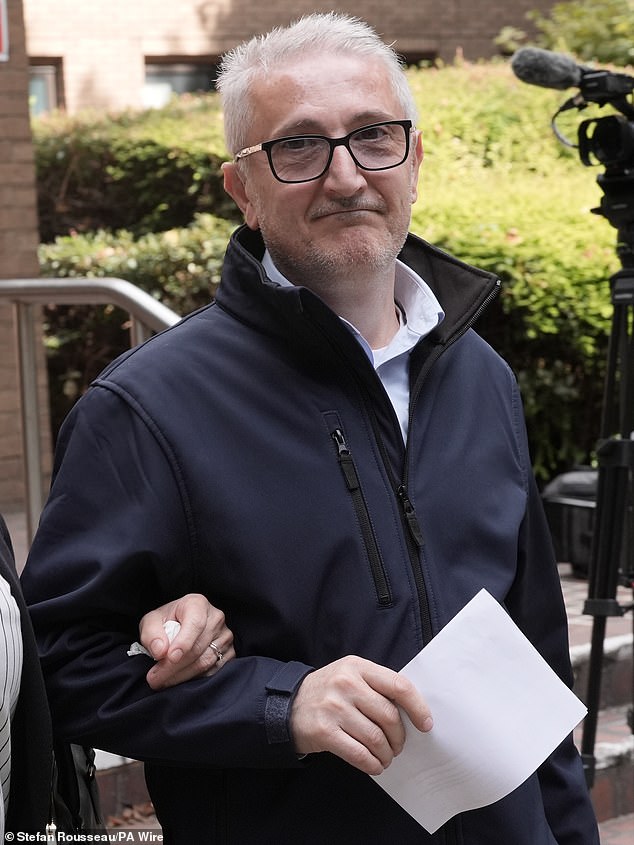
Moussa Kadri (pictured) was spared prison for the slashing
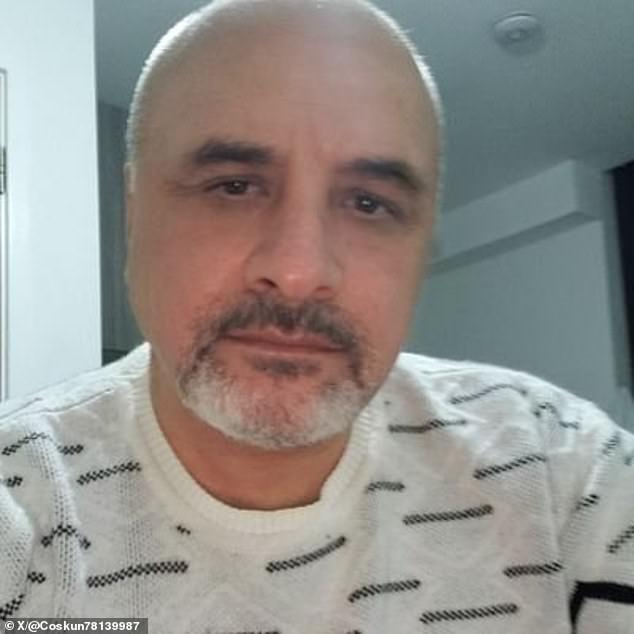
Coskun shouted ‘f*** Islam’, ‘Islam is religion of terrorism’ and ‘Koran is burning’, as he held a flaming Islamic text aloft outside the Turkish consulate on February 13
But Mr Trump’s comments about Sharia law have prompted a renewed debate about its influence in the UK.
Appearing on LBC today, Reform UK leader Nigel Farage sought to play down their significance by saying they should not be taken ‘literally’.
He added: ‘So is he right to say that Sharia is an issue in London? Yes. Is it an overwhelming issue at this stage? No. Has the mayor of London directly linked himself to it? No.’
Sir Sadiq has been misquoted in the past as saying that Sharia law was being ‘rolled out’ across London.
At the time, his office confirmed that the quote – which misspelled the word sharia as ‘shakira’ – had been fabricated.
The Mayor was forthright at Mr Trump’s comments, branding the president ‘racist’ and ‘Islamophobic’.
‘Listen, when people say things, when people act in a certain way, when people behave in a certain way, you’ve got to believe them,’ he told Sky News.
‘I think President Trump has shown he is racist, he is sexist, he is misogynistic and he is Islamophobic.’
Earlier, the Mayor said he did not understand Mr Trump’s reference to Sharia law.
‘It’s one for him to explain. I don’t understand what he means,’ he said. ‘I just this weekend sent out my message wishing my Jewish friends and neighbours a happy Rosh Hashanah.
‘I recently was celebrating Black on the Square, leading again, for the ninth year in a row, Pride in London. It’s for Donald Trump and his coterie and his admirers to explain what he means.’

